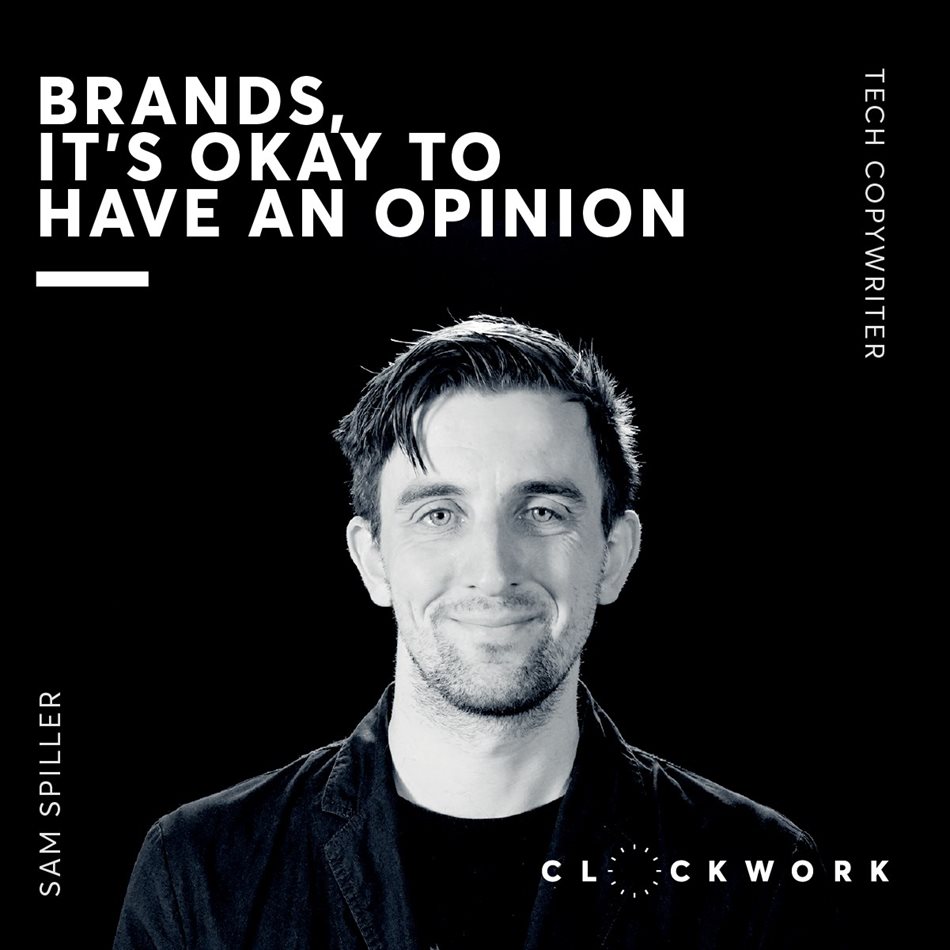
Top stories






More news















But this is an extreme example and one that involves an element of public advocacy. When I say brands should be comfortable having an opinion about something, it’s centred more on being able to drive a conversation and meaningfully contribute to it. This may sound trivial, but there are many brands out there that don’t even try, whether out of fear, apathy, or a general unwillingness to engage. There is, however, a lot to be gained from having thoughts and opinions, especially when it comes to B2B communication.
Just as in a debate, strength and validity come from an ability to argue and justify your position. And when a brand can brandish a well-constructed and thought-out opinion, even about something that isn’t provocative or only tangential to their business, there are benefits to be had.
If we were to get technical for a second, companies are their own people. There are legal underpinnings to this in the form of ‘corporate personhood’ – the idea that a corporation can wield the same legal rights and responsibilities of a natural person despite not having the same form of such (the United States is the poster child of this idea, going so far as to declare corporations may, in certain cases, reject government mandates based on religion). This is a contentious idea (one that I wouldn’t recommend businesses voice their opinion on), but it lays the groundwork for understanding how businesses like to perceive themselves and operate – everyone from the family-run corner store to giants like Disney.
With the advent of digital media in the 21st century came a new side to the corporation being regarded as a ‘person’. One that didn’t focus on legalities, but rather on building a personality and forming a relationship with consumers. Digital marketing strategies that used popular platforms and channels required businesses to have their own voice, to correspond in a more relatable, human-like manner, and to have thoughts and mannerisms of their own. But, at the same time, there’s the desire to remain as centrist and inoffensive as possible. And that desire can prevent them from participating. Sadly, this is also the case when it comes to communicating with industry players and partners, a space and audience that is better acclimatised to discussing and sharing new ideas.
A brand’s personality needs to show some depth, and that comes in the form of a company commenting on and responding to developments in the world. For example, tech companies should have a view on the latest innovations. They shouldn’t be afraid to call out trends they believe to be overrated or sensationalised. (I’m looking at you, Web3.) Sharing this not only positions them to lead the conversation and inspire others, but also demonstrates their expertise.
To be very clear, no two businesses are the same when it comes to the kind of brand personality and opinions they allow themselves to have. There is a spectrum of officials, executive team members, and founders who might not see the benefit of or be inclined to comment on the world around them. And that is okay. But that doesn’t mean the conversation has to end there.
Companies need to trust their respective marketing professionals and agencies to formulate and best articulate the ideas and thoughts they bring to the table. One of the biggest challenges PR firms face is clients that refuse to open up. This goes for both the business as a whole and the individuals that comprise it. When sitting down to interview a company executive, that company expert should be encouraged to expand beyond the prepared questions. Let them share their interests and where their passions lie. Ask them to forecast the future and comment on new developments and innovations. Thus, the foundation is laid to be built upon with research, client feedback and communication, as well as targeted publications.
Sharing your opinion about something related to your business shouldn’t bear the risk of making headline news, as long as it’s eloquent, curated, and on-brand.